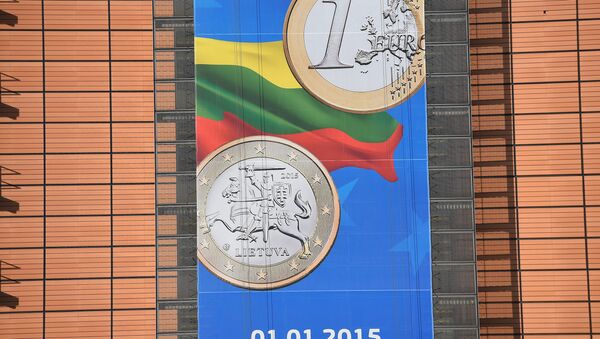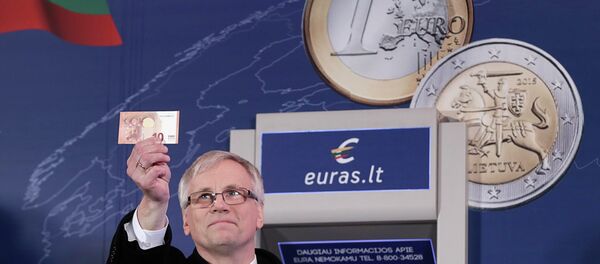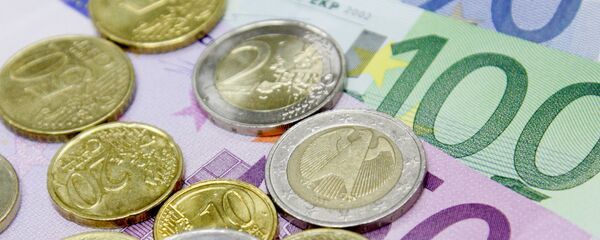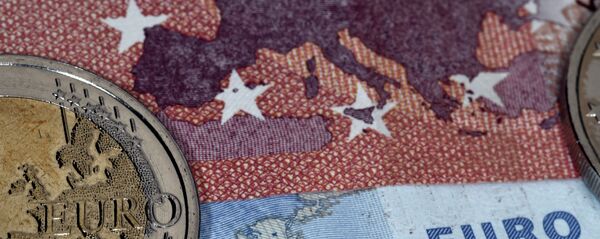VILNIUS/KLAIPEDA (Sputnik) — Up to the beginning of July, merchants were obliged to display prices in both currencies so that citizens could get used to the official eurozone currency.
Rising Prices
"It seems that traders rewrote their price tags, replacing the litas with the euro at the one-to-one rate," Rimante, 55, a visitor to Gariunai, a famous market in Vilnius, said.
The woman wanted to buy a suitable summer dress, costing 175 euro ($200).
The price of a men's suit at the Gariunai market is at least 150 euros, jeans are 30 euros, and shirts range from 15 to 20 euros on average.
"Everything has become much more expensive if one converts [the prices] into old litas," Rimante complained.
European Pensions Vanished
"I still recalculate everything into litas to make it easier to orientate myself. And I notice that prices have risen dramatically. Concerning some goods, there is an impression that the sellers simply replaced the word ‘litas’ with the word ‘euro,’" 66-year-old retiree Danuta said.
Her pension is now 230 euro. Though the payment might not seem so low, Danuta spends about 100 euro on rent. The remainder goes to food and medicines, and prices on these necessities have gone up.
"For some reason, I managed to save money in litas. There is no such possibility in euro," Danuta pointed out.
Prices have increased so that pensioners living in the south of the country prefer to go to neighboring Belarus and Poland to buy certain goods, such as cigarettes, reselling them at home.
"By the way, Poland is in the European Union for a long time; however, it is not in a hurry to enter the euro area. It still uses its zloty. Perhaps, there is a reason for this," Danuta observed.
Fading Economy
In the 24 years since it became independent, Lithuania's population has decreased from 3.7 to 2.9 million. The majority of those who left headed to other European countries, mostly for higher wages. England, Italy, and the Nordic countries are among the most popular destinations.
According to recent statistical data published by authorities, Lithuanian exports fell by 4 percent in the first half of 2015, while imports rose by 1.9 percent. The foreign trade deficit of Lithuania grew by as much as 80 percent compared to the same period in 2014, amounting to 1.54 billion euro.
The Nielsen marketing research company has performed statistical analysis, claiming that Lithuanian nationals spend about 60 percent of their funds on food products. This figure is on par with EU countries such as Latvia (70 percent), Romania (64 percent) and Bulgaria (61 percent). In 2015, the number of Lithuanians who prefer to cook at home rather than eat out increased by 10 percent, Nielsen said in its report.
"I usually take just a coffee or a beer in a cafe. I don’t have enough money for the rest," 30-year-old builder Lokys said, adding that he was considering a move to Germany or Sweden, where his professional skills are more likely to find a higher wage.
The majority of cafe visitors in Lithuania’s cities of Vilnius, Klaipeda and Palanga appear to be tourists. Local residents are often said to not be able to afford the meals.







